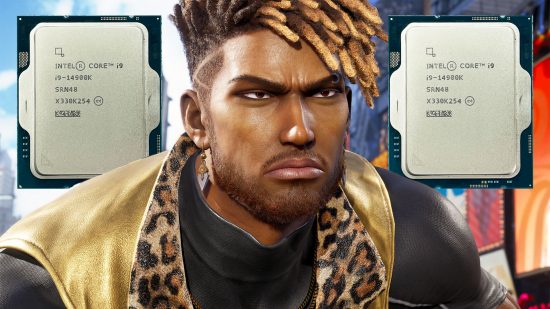Gamers are reportedly returning Intel gaming CPUs at an increased rate because of instability in several PC games. The company is reportedly investigating this Intel gaming CPU issue right now, but this isn’t the first time Intel’s latest top-end 13th gen and 14th gen CPUs have been associated with stability problems in games.
The current top-end Intel processors are undoubtedly among the best gaming CPUs when it comes to all-out multi-threaded performance, but our Core i9 14900K review also noted that “it’s impossible to ignore how hot this chip runs,” as well as pointing “its thirst for watts.” These chips can run hot, and they need a lot of power as well to sustain the massive clock speeds of up to 6GHz on the 14900K.
The reported stability problems appear to affect games based on the Unreal Engine, which is now a running theme. In March 2024, the devs of Outpost: Infinity Siege (an Unreal Engine game) advised gamers to underclock their Intel CPU in order to avoid “crashes and screen blackouts.”
This time the demo of Tekken 8 is apparently a particularly problematic example. According to a report on ZDNet in Korea, Tekken 8 crashes to the desktop with an error message saying the PC doesn’t have enough memory, even on systems with an abundance of both VRAM and system memory, and only on systems using Intel 13th gen and 14th gen CPUs.
The site also notes reports of similar forced shutdown issues in a number of other games based on the Unreal Engine, including Hogwarts Legacy, The Finals, and Overwatch 2. ZDNet also quotes an anonymous source from a company responsible for distribution and customer support of Intel CPUs in Korea, who says that “the number of consumers visiting the customer center asking to change their 13th and 14th generation core processors has recently increased to more than ten per day.”
We’ve reached out to Intel for comment on the reported issues, and the company has reportedly provided a statement to ZDNet saying that it’s “aware of problems that occur when executing certain tasks on 13th and 14th generation core processors for desktop PCs, and is analyzing them with major affiliates.”
Intel’s Core i9 CPUs have very high clock speeds, despite only being built on a 10nm process, and as a result they output a lot of heat and draw a lot of power compared to their AMD equivalents. In our AMD Ryzen 9 79550X review, we noted that our system drew 376W at full load with the AMD CPU installed, while a system with the same spec based on Intel’s platform drew a massive 546W from the mains with the Core i9 13900K running at full load.
However, while these chips are hot and power hungry, we’ve not spotted any instability with them, and we urge caution when it comes to specifically blaming Intel CPUs for the reported problems. It could, after all, be down to a software compatibility problem between Unreal Engine and Intel’s current CPU pipeline, which can be patched at a later date, rather than a problem with the CPUs overheating.
Either way, there’s no need to buy one of Intel’s Core i9 CPUs if you’re just looking to build a gaming PC, as the AMD Ryzen 7 7800X3D offers superb gaming performance for much less money, and it won’t eat your CPU cooler and power supply for breakfast either.
